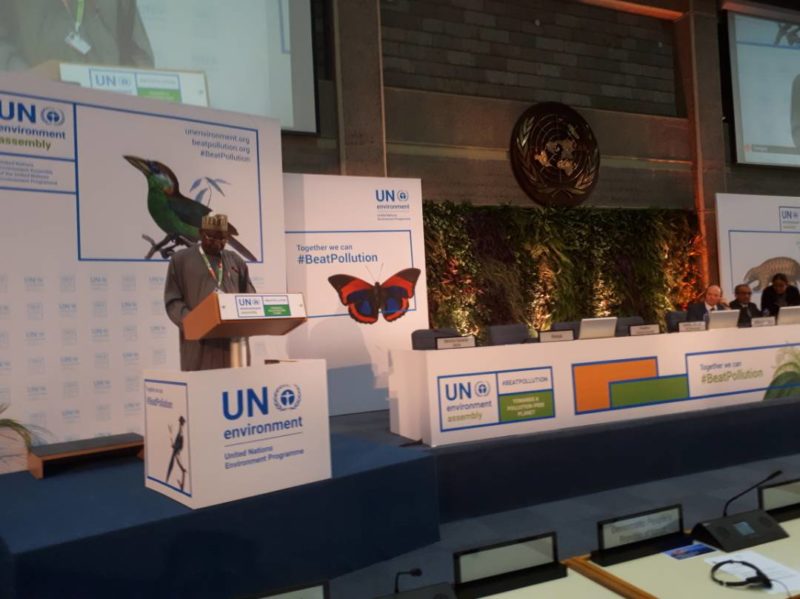Minister of State for Environment, Ibrahim Jibril, has declared that Nigeria is unassailably dedicated to resourceful deliberations and amicable resolutions on globally acceptable framework for actions that will guide transition towards a pollution-free planet.

The Minister made the statement in a speech at the opening of the 3rd United Nations Environment Assembly which opened on Monday, December 4, 2017 in Nairobi, Kenya.
“Pollution affects the air, soil, rivers, seas and health of Nigerians in an adverse way even though the actual cost has not been determined because usable data is scattered in compartments in various Agencies. It has been identified that transboundary pollution accounts for 28% of disease burdens in Africa.
“Therefore Nigeria uses regulatory framework and policies approach to address potential environmental and social impacts that may be generated during developmental projects,” he said.
“The Nigerian Government aligns itself with the position of the African Ministerial Group and the efforts of the International Community to achieve pollution – free planet. In pursuit of a clean and healthy environment, the Nigerian Government has embarked on a number of programmes, activities and projects aimed at managing and preventing pollution,” Jibril added.
He listed some of these activities to include: solid waste management, remediation of polluted sites, chemicals and hazardous wastes management and air quality management.
According to him, Nigeria flagged off an action plan for the management of spent oil in September, 2017 and launched a customised storage tank for this purpose.
He pointed out that, after UNEA-2, the nation revised and updated the Environmental Impact Assessment Act to expand the legislative coverage in line with Principle 17 of Agenda 21. He added that additional guidelines were produced on strategic environmental assessment, decommissioning of facilities, waste management, urban development, pesticides, renewable energy, as well as social and health impacts, among others.
“This is to ensure that all development projects factor in environmental concerns, wastes management and mitigation measures into project planning and implementation in order not to exceed Environmental thresholds,” the minister added.
By Alex Abutu
